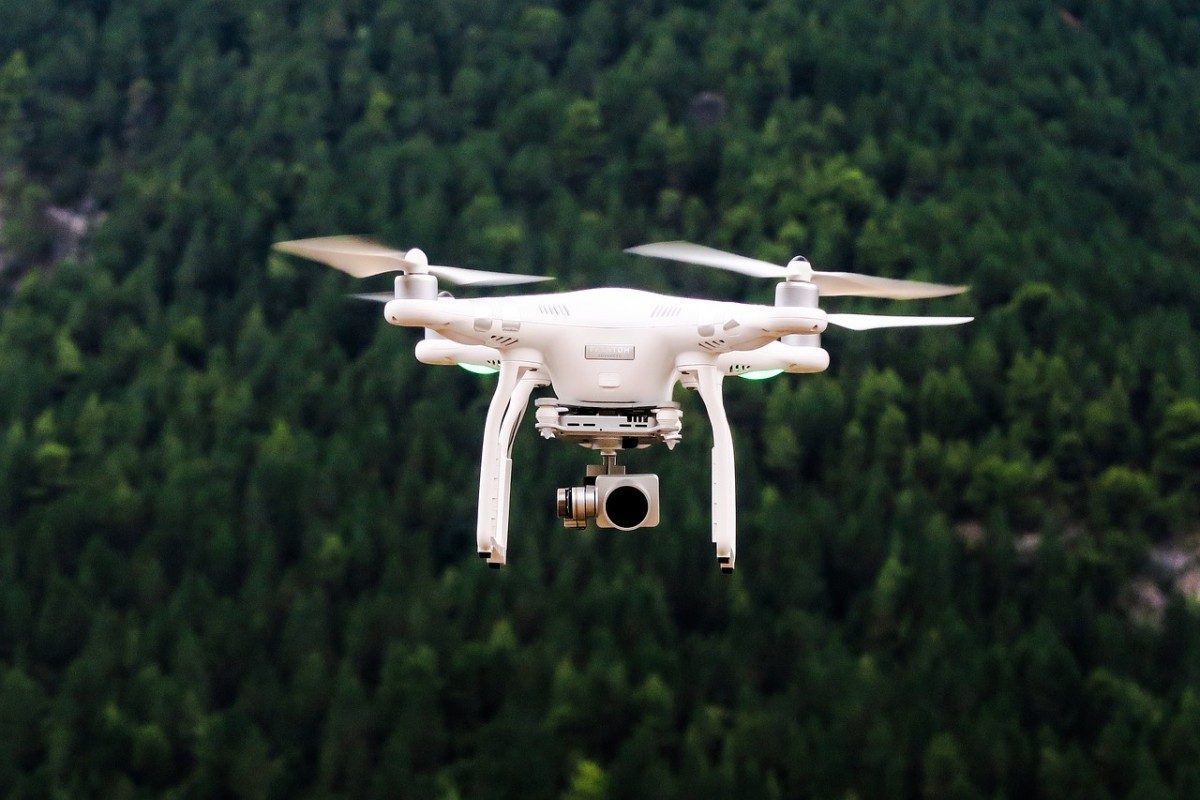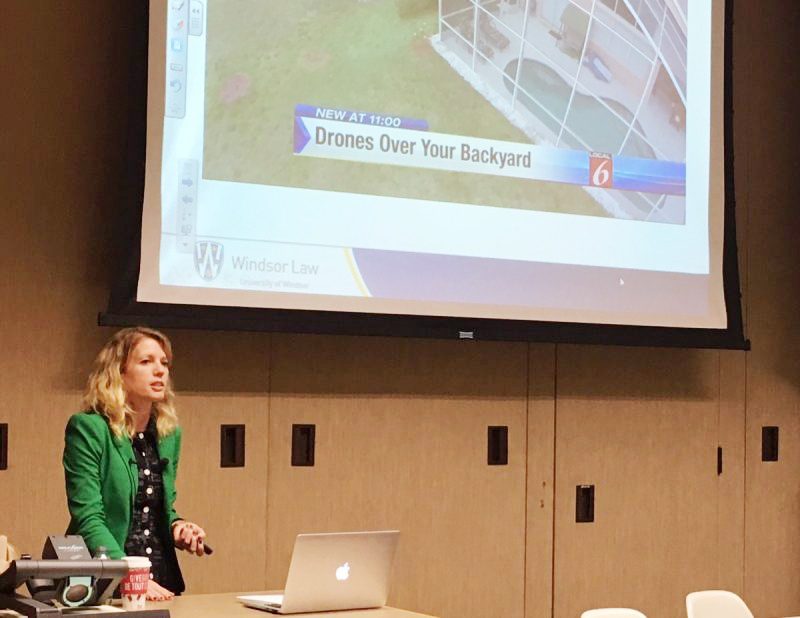
I see you
Drones and privacy law research
Distinguished Visiting Lecturer Kristen Thomasen
The last Distinguished Visitors Lecture of 2017 was University of Windsor’s Assistant Professor Kristen Thomasen. A Ph.D. candidate at the University of Ottawa, Professor Thomasen’s research focuses on the legal, social and ethical implications of robotic technologies and artificial intelligence. Professor Thomasen spoke to students and faculty at Robson Hall on November 9th, 2017, about “Private Drones and Public Privacy.”
She began by describing how two different individuals reacted to seeing the flying robotic cameras hovering noisily over them in two cases.
In one, a Kentucky man who has been evocatively dubbed “The Drone Slayer” shot down a drone that flew over his yard where his two young daughters were playing. Though he was charged with “wanton endangerment” for unsafe gun use in a residential area, the court ruled that he was justified in the shooting due to violation of his privacy.
In the second case, a woman who assaulted a man operating a drone on a public beach, went to prison for the assault. The drone operator was found not to have done anything wrong. The key distinction, Thomasen said, was the location: private yard versus public beach.
A clear message Thomasen brought to the Robson Hall audience was that the law surrounding use of drones, while interesting and cutting-edge, is very undeveloped and in great need of more research.
Anyone can buy a drone these days, and their programming is becoming very sophisticated in that they can do a lot and are easy to use. Airspace has historically been legally designated as public, and at this time, drone-specific laws are not clearly defined. Drones are loosely regulated by Transport Canada, whose website only mentions drones in the context of safety rules for recreational users (given that a drone once collided with an airplane), but does not contemplate privacy.
What is reasonable
Thomasen explained that tort law that would apply to drone use exists in statutory format only in Manitoba, British Columbia, Saskatchewan, and Newfoundland. Applicable case law includes Douez v. Facebook, Inc., 2017 SCC 33 where Douez, a B.C. resident, brought an action against Facebook alleging it used her name and likeness without consent for advertising purposes, contrary to the B.C. Privacy Act. The SCC’s majority decision held that Facebook had an unfair and overwhelming benefit over the applicant. Currently, an applicant doesn’t have to prove losses suffered, but they do have to prove invasion of privacy.
However, legislation does not adequately define privacy, and very little case law addresses this topic as well. The most important point to note about privacy law is “what is reasonable in the circumstances,” Thomasen said. For example, there no reasonable expectation of privacy for actions taking place in a public space as decided in Milner v. Manufacturers Live Insurance Co. 2005 BCSC 1661 para 76-77. The Criminal Code of Canada offers only section 162 (1) regarding Voyeurism, where it is an offence to secretly record someone when they have a reasonable expectation of privacy.
Thomasen concluded that all of the circumstances surrounding use of drones will have to be considered when determining whether or not someone’s privacy has been violated by them.
Audience members asked many questions and came away with the clear impression that this area of the law is in great need of further research given that it is so new and unexplored at this time.
The next Distinguished Visitors Lecture in the series will feature Dr. Benjamin Geva speaking on “Money and Payments Digitization: Evolution, Revolution and the Law,” Thursday, January 18th at 12:00 p.m. in Moot Courtroom B at Robson Hall, 224 Dysart Road.
Watch Kristen Thomasen’s full talk on the Robson Hall Youtube Channel.







